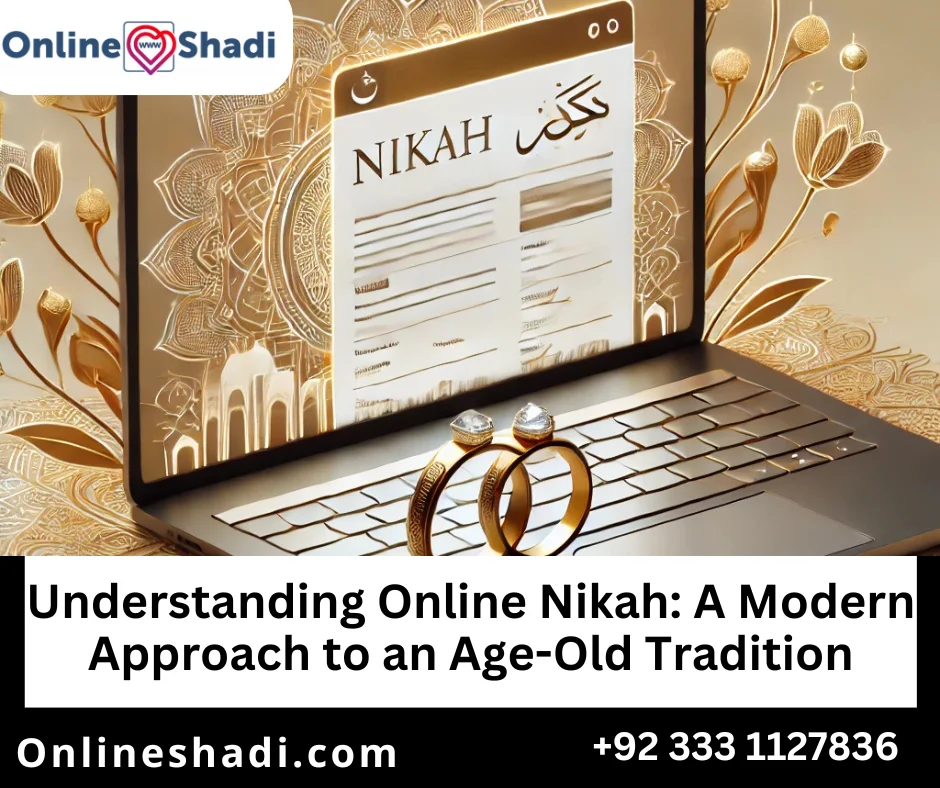In the digital age, technology is transforming nearly every aspect of life—including how people get married. One such evolution is the Online Nikah, a legally recognized Islamic marriage ceremony conducted through digital means. This innovation is especially relevant in a world shaped by globalization, remote living, and increased access to the internet. But what exactly is an online nikah, and how does it work?

What is Online Nikah?
Online Nikah refers to the solemnization of an Islamic marriage contract (Nikah) through a digital platform, such as Zoom, Skype, or any video conferencing tool. The practice maintains the same religious and legal significance as a traditional, in-person nikah, with all essential components intact: the bride and groom, witnesses, a wali (guardian) for the bride (where required), and an officiant (nikah khawan or Qazi).
Why Choose an Online Nikah?
There are several reasons why couples might opt for an online nikah:
Long-Distance Relationships: Many couples are separated by borders, immigration processes, or work obligations.
Pandemic & Travel Restrictions: COVID-19 accelerated the need for remote ceremonies.
Convenience & Cost-Effectiveness: An online nikah often reduces the need for travel, venue bookings, and other expenses.
Immediate Legal Needs: Sometimes, legal or visa requirements necessitate a swift marriage process.
The Process of Online Nikah
While the specific procedure can vary slightly depending on the country or Islamic school of thought, the basic steps usually include:
1. Consent of the Bride and Groom: As with any nikah, mutual consent is the foundation.
2. Appointment of a Wali: Particularly for the bride, a wali may be required depending on the school of thought.
3. Presence of Two Witnesses: These can be present either physically or virtually.
4. Mahr Agreement: The agreed-upon dowry must be clearly defined.
5. Officiation: A qualified nikah registrar or religious scholar conducts the nikah and recites the khutbah.
6. Documentation: A marriage contract is signed and, where necessary, attested or notarized.
Some platforms also offer notarization and registration services to ensure the marriage is legally recognized in specific jurisdictions.

Is Online Nikah Legally Valid?
This depends on the country and jurisdiction. In many Islamic countries, online nikah is legally recognized if it meets religious and legal criteria. However, civil recognition may vary:
Pakistan: Online nikah is valid and legally recognized when conducted properly, often with the support of a lawyer and registration.
United Kingdom: Online nikah may be religiously valid but may not qualify as a legal civil marriage unless registered with local authorities.
United States & Canada: Certain states or provinces may allow online marriages, especially with remote notarization laws in place.
Middle Eastern countries: Acceptance varies—some countries may require in-person documentation for civil recognition.
Before proceeding, it’s crucial to consult both religious scholars and legal professionals to ensure the nikah is valid and enforceable in both religious and civil terms.

Challenges and Considerations
Fraud Risk: As with many online interactions, identity verification is key.
Cultural Acceptance: Some families or communities may be hesitant to accept a marriage conducted online.
Legal Recognition: A nikah may be valid religiously but not legally, which can affect issues like spousal visas, inheritance, or divorce proceedings
Conclusion
Online Nikah is a practical solution for modern Muslims navigating a globalized world. It retains the sanctity of traditional Islamic marriage while offering flexibility and accessibility. However, like any form of contract or religious rite, it must be approached with care, proper planning, and respect for both religious and legal frameworks.

